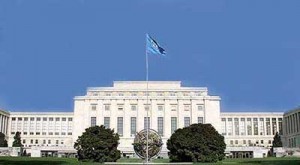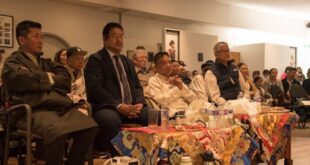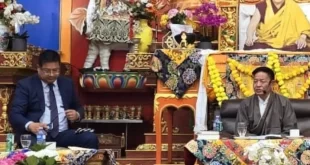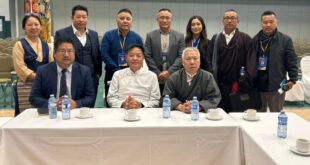GENEVA (1 November 2011) – A group of United Nations independent experts voiced grave concern over reports of heavy security measures, in and around the area of the Tibetan Buddhist Kirti monastery – which houses some 2,500 monks- and other monasteries in Aba County, an area of Sichuan province with many ethnic Tibetans in south-west China.

“Intimidation of the lay and monastic community must be avoided, and the right of members of the monastic community, and the wider community to freely practice their religion, should be fully respected and guaranteed by the Chinese Government,” stressed the UN Special Rapporteur on freedom of religion or belief, Mr. Heiner Bielefeldt, noting that the recent deployment of security forces is reported to include officers in riot gear, soldiers with automatic rifles, and trucks and armed personnel on the streets leading to the monastery.
Further measures are reported to include security raids and surveillance within monasteries, with police presence inside and outside monasteries to monitor religious activities. “Such restrictive measures not only curtail the right to freedom of religion or belief, but further exacerbate the existing tensions, and are counterproductive,” Mr. Heiner Bielefeldt said.
His comments were echoed by the Special Rapporteur on the rights to freedom of peaceful assembly and of association, Mr. Maina Kiai, who warned that “such measures seriously impede the exercise of the right to association of members of the monastic community.”
The UN Special Rapporteur on the right to freedom of opinion and expression, Mr. Frank La Rue, added his voice expressing his “deep concern about allegations of restrictions to Internet access and mobile messaging services within Aba Country, as well as journalists’ lack of access to the region.” In his view, “rather than taking such measures, the Government should instead listen to and address the legitimate grievances of the monastic community.”
The heavy security measures adopted have resulted in increased tensions between the Chinese authorities and members of the monastic community, in particular since March 2011, a period which has seen an escalation of protests by both lay persons and members of the monastic community, calling for religious freedom. The severe restrictions on freedoms of religion, expression and association, have led to hundreds of monks reportedly leaving the monastery, with many being arrested or subjected to enforced disappearance.
“Any enforced disappearance is unacceptable and such practices are in violation of international law,” said the Chair-Rapporteur of the Working Group on Enforced or Involuntary Disappearances, Mr. Jeremy Sarkin, expressing concern that a proposed revision to the Chinese Criminal Procedure Law will legalise enforced disappearances in the country. “This heinous practice is not permitted under any circumstances. No exceptional circumstances whatsoever may be invoked to justify an enforced disappearance.”
Another UN expert panel, the Working Group on Arbitrary Detention, expressed concern about the recurring practice of arbitrary arrests and detention of monks in the area of Sichuan province. “No individual can be arrested on the ground of peacefully exercising the rights and freedoms guaranteed under international human rights law,” stressed Mr. El Hadji Malick Sow, the Group’s Chair-Rapporteur.
The Independent Expert on minority issues, Ms. Rita Izsák, also called on the Chinese authorities to fully respect and uphold the rights of minorities including their rights to freely practice their religion and culture. “Allegations suggest that this is far from the case in this region and I urge the Government to cease any restrictive practices and refrain from any use of violence or intimidation.”
UN Human Rights – China: http://www.ohchr.org/EN/Countries/AsiaRegion/Pages/CNIndex.aspx



